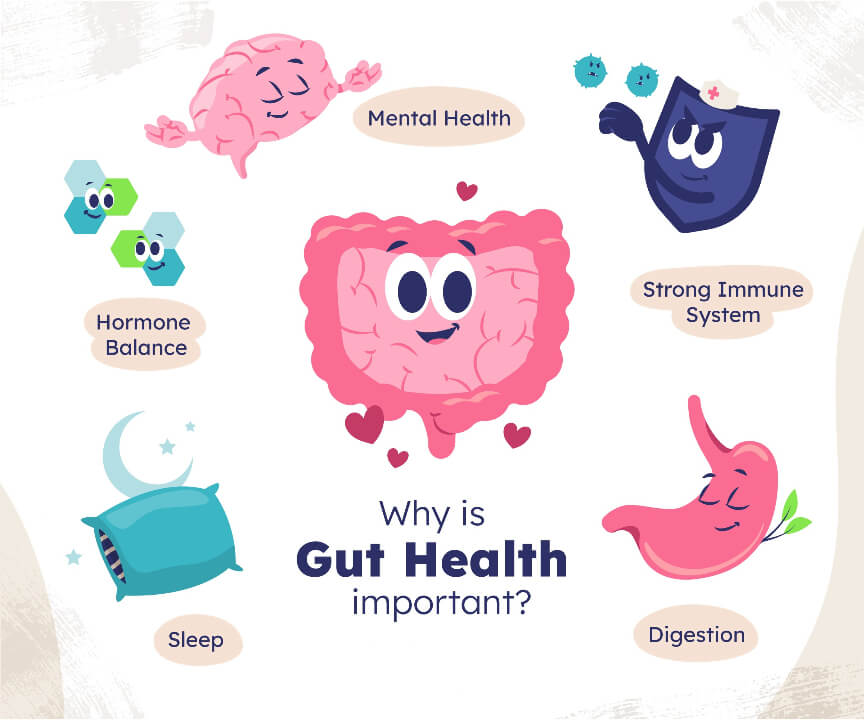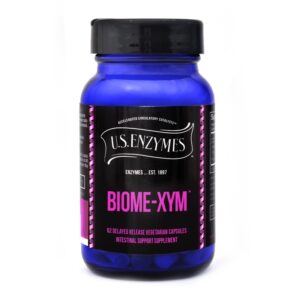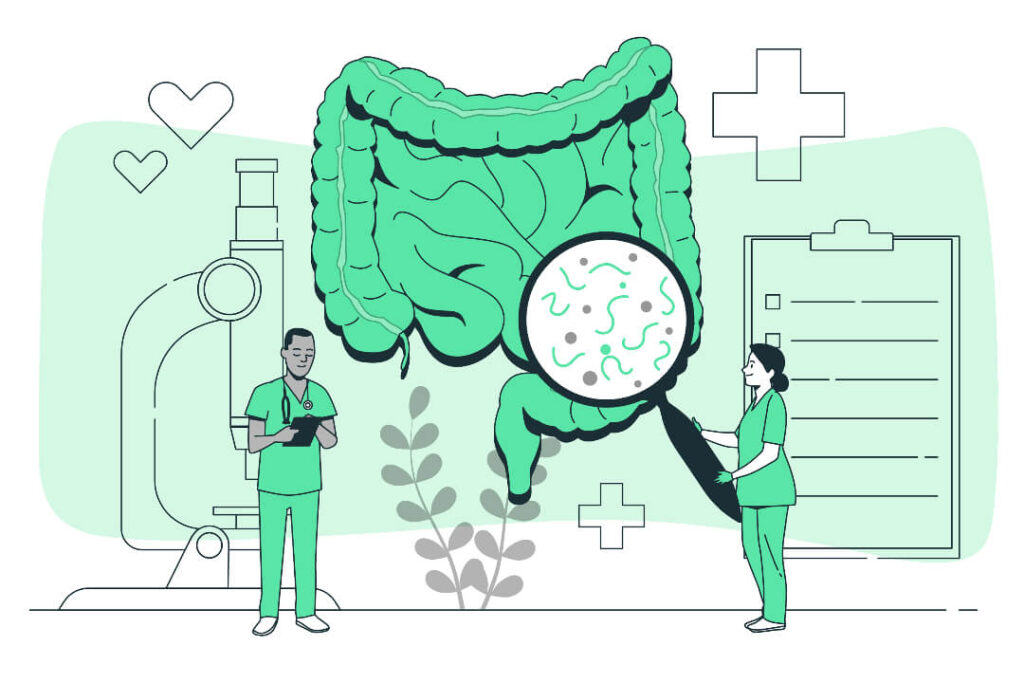Introduction
Our gut is like a bustling metropolis, teeming with microscopic residents that play crucial roles in our overall health. Two key players in this microbial city are enzymes and probiotics. Let’s dive into their fascinating world and explore how they impact our well-being.
1. Digestive Enzymes: The Tiny Helpers
What Are Digestive Enzymes?
Digestive enzymes are like the backstage crew at a concert—they work tirelessly behind the scenes to ensure everything runs smoothly. These tiny protein molecules help break down complex nutrients into smaller particles that our bodies can absorb and utilize. Here are some common types:
- Amylase: Produced in our salivary glands and pancreas, amylase breaks down complex carbohydrates into simpler sugars.
- Lipase: Also from the pancreas, lipase dismantles fats into free fatty acids and glycerol.
- Protease: Another pancreatic enzyme, protease disassembles proteins into individual amino acids.
How Do Digestive Enzymes Work?
Imagine enzymes as specialized keys that fit perfectly into specific locks (substrates). They have unique shapes and active sites that attract and connect with target components, just like a lock and key. These enzymes are made in various parts of our digestive system, including the salivary glands, stomach, small intestine, and pancreas.
Can You Overdose on Digestive Enzymes?
While it’s rare to overdose on digestive enzymes from natural food sources, excessive supplementation can lead to digestive discomfort. Moderation is key!
Should Pregnant Women Take Digestive Enzymes?
Pregnant women can safely take digestive enzymes, but it’s essential to consult a healthcare provider. Enzymes can help alleviate pregnancy-related digestive issues.
How Long Can People Take Digestive Enzymes?
Digestive enzymes can be taken long-term and virtually forever, especially if you have conditions like pancreatic insufficiency or irritable bowel syndrome. However, consult your doctor for personalized advice.

2. Probiotics: The Gut Guardians
What Are Probiotics?
Probiotics are the friendly neighborhood superheroes of our gut. They’re live microorganisms (usually bacteria) that maintain a healthy balance in our gut microbiota. Think of them as the peacekeepers, ensuring harmony among the gut bacteria.
How Do Probiotics Work?
Probiotics:
- Enhance overall gastrointestinal health.
- Strengthen immune defenses.
- Promote a balanced gut microbiota.
Can You Take Probiotics While Pregnant?
Yes! Probiotics are generally safe during pregnancy. They may even reduce the risk of certain complications.
Can Probiotics Be Taken with Prescription Drugs?
Consult your doctor before combining probiotics with prescription medications. Some interactions may occur.
Should Children Take Probiotics?
Children can benefit from probiotics, especially if they have digestive issues or weakened immune systems. Always follow age-appropriate dosages.
What Are the Health Benefits of Probiotics?
Probiotics:
- Improve digestion and nutrient absorption.
- Alleviate diarrhea and constipation.
- Support mental health.
- May reduce inflammation and allergies.
Purchase Probiotics here!
You can find these in our affiliate store, click here to read more specific details

Conclusion
Enzymes and probiotics—these unsung heroes keep our gut orchestra in tune. Whether you’re seeking better digestion, immunity, or overall well-being, consider inviting these friendly microbes to your daily party!
Remember, a happy gut equals a happy you! 🌟🦠🥦
I hope this blog post sheds light on the fascinating world of enzymes and probiotics! If you have more questions or need further information, feel free to ask. 😊

